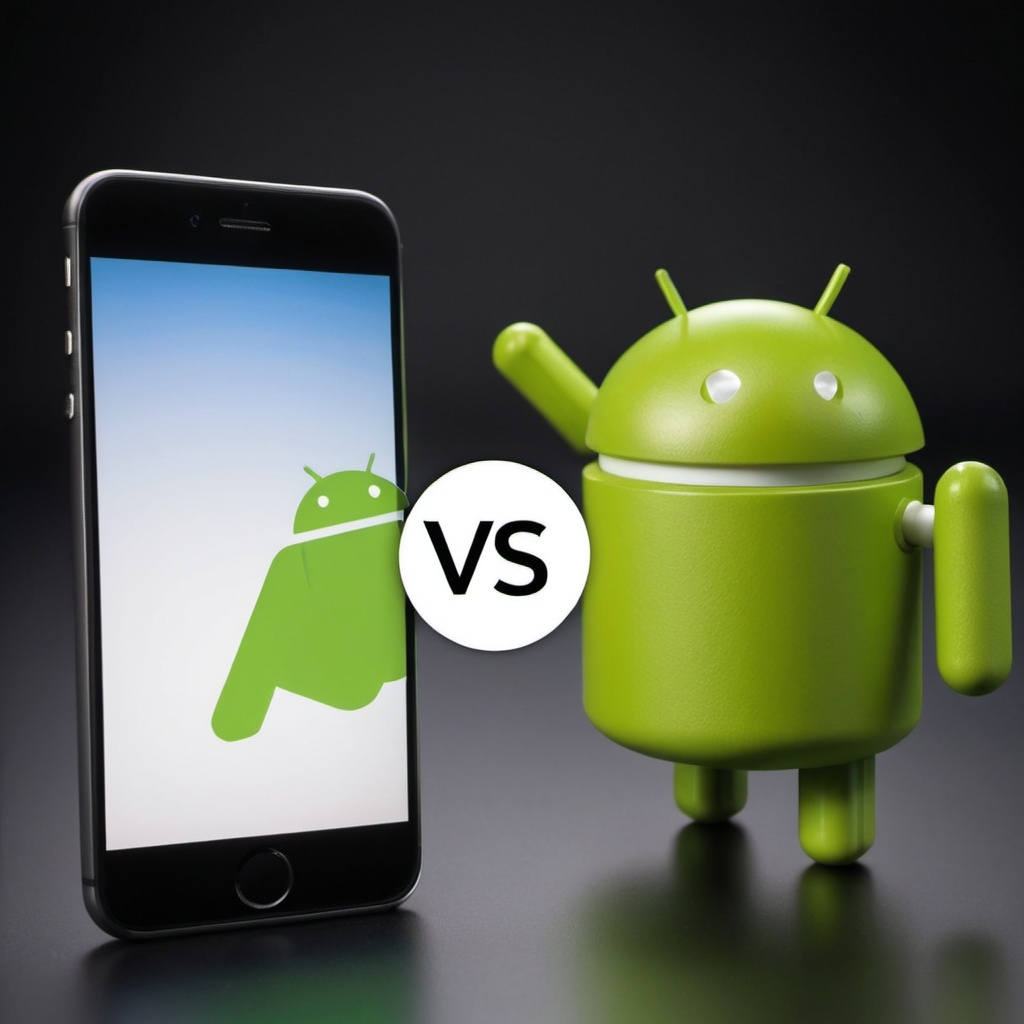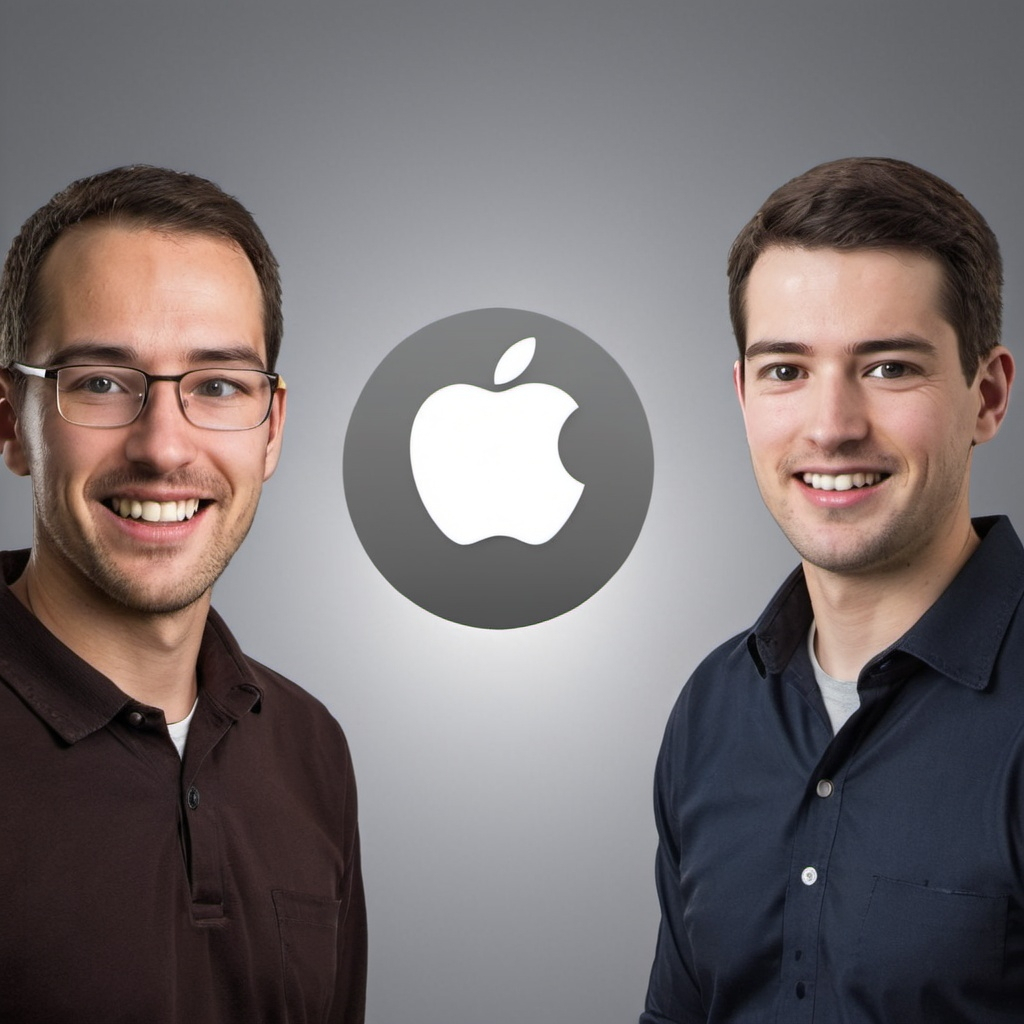Comparing Apple’s Latest with Android 13 and 14
With recent announcement of iOS18, there has been a debate as well as discussion on the internet as if et all the features introduced in iOS are pretty unique (I mean Out-of-the-box) or is Apple playing catch-up. Nonetheless, its exciting time as ever – In the ever-evolving world of mobile operating systems, Apple and Google have established themselves as the dominant players with iOS and Android, respectively. Each iteration of these platforms brings a slew of new features, improvements, and enhancements designed to provide users with the best possible experience. iOS 18, the latest offering from Apple, is no exception, introducing a host of new capabilities that aim to keep the iPhone at the forefront of mobile technology. However, despite these advancements, iOS 18 still finds itself playing catchup with Android in several key areas.
Android 13 and the upcoming Android 14 have set high standards with their innovative features, customization options, and user-centric functionalities. While iOS 18 has made significant strides, there are still aspects where it lags behind its Android counterparts. This article aims to explore these gaps, highlighting where iOS 18 falls short and what makes Android 13 and 14 continue to be strong contenders in the mobile OS space.
Contents
Customization and User Interface Flexibility.
Multitasking and Productivity.
Integration with Other Devices and Ecosystems.
Advanced Features and Innovations.
Artificial Intelligence and Machine Learning.
Comparative Table: iOS 18 vs. Android 13/14
Why People would still Prefer iOS 18 Over Android 13.
Seamless Integration Within the Apple Ecosystem..
Advanced Privacy and Security Features.
Exclusive Apps and Early Access.
Superior Hardware and Software Integration.
From customization and user interface flexibility to multitasking capabilities and integration with other devices, the differences between iOS 18 and Android are notable. We will delve into the specifics of these areas, providing a comparative analysis that underscores where Apple still has room for improvement. By examining these shortcomings, users can gain a better understanding of the strengths and weaknesses of each platform, aiding in informed decision-making when choosing between an iPhone and an Android device.

In the following sections, we will explore the major areas where iOS 18 is still playing catchup with Android, backed by a detailed comparative table summarizing the gaps. Whether you’re a loyal iPhone user curious about the competition or an Android enthusiast interested in how the latest iOS stacks up, this article will provide valuable insights into the current state of mobile operating systems.
Customization and User Interface Flexibility
Home Screen Customization
One of the most significant areas where iOS 18 lags behind Android is home screen customization. While iOS 18 has introduced more widgets and customization options than previous versions, it still pales in comparison to the flexibility offered by Android. Android users can place widgets of any size anywhere on their home screen, create custom app icons, and even use third-party launchers to completely overhaul the look and feel of their device.
Themes and Personalization
Android’s robust theme engine allows users to change the entire aesthetic of their device, from system colors to icon packs and fonts. In contrast, iOS 18 offers limited theming capabilities, primarily focusing on wallpaper changes and a few widget options. This lack of deep customization can make iOS feel more restrictive for users who enjoy personalizing their device’s appearance to a greater extent.
Always-On Display
While iOS 18 has introduced an always-on display feature, it still lacks the extensive customization options available on Android. Android users can choose what information is displayed, customize the layout, and even download third-party always-on display apps for additional features. In contrast, the always-on display on iOS 18 is more limited, with fewer customization options and less flexibility in what can be shown.
Multitasking and Productivity
Split-Screen Multitasking
Multitasking on iOS 18 has seen improvements, but it still does not match the capabilities of Android. Android has long offered split-screen multitasking, allowing users to run two apps side by side with ease. This feature is especially useful on larger devices like tablets, where screen real estate can be maximized for productivity. iOS 18 has introduced some multitasking features like Slide Over and Split View, but they are not as intuitive or flexible as what Android offers.
App Switching
App switching on Android is generally faster and more efficient than on iOS. Android’s recent apps screen provides a more accessible way to switch between open apps, with options to view apps in a grid layout for quicker navigation. iOS 18 has improved its app switcher, but it still requires more steps to switch between apps compared to Android’s streamlined approach.

File Management
The Files app in iOS 18 has been enhanced, but it still falls short of the file management capabilities available on Android. Android users benefit from a more open file system that allows for easier access to files and folders, support for external storage devices, and more comprehensive third-party file management apps. In contrast, iOS’s file management remains more restricted, limiting the ways users can interact with and organize their files.
Integration with Other Devices and Ecosystems
Cross-Platform Compatibility
While Apple’s ecosystem is known for its seamless integration, it is largely confined to Apple devices. In contrast, Android offers greater cross-platform compatibility, allowing users to connect and sync with a wider range of devices and services, including Windows PCs, various smart home devices, and other non-Apple products. This flexibility makes Android a more attractive option for users who do not exclusively use Apple products.
Third-Party App Integration
Android’s open nature allows for deeper third-party app integration, giving users more options to customize their device’s functionality. From alternative app stores to custom ROMs, Android users have a plethora of choices when it comes to enhancing their device. iOS 18, while offering a curated and secure app ecosystem, limits third-party app integration, restricting the level of customization and functionality that can be achieved.
Smart Home Integration
Android’s compatibility with a wider range of smart home devices gives it an edge over iOS in this area. While Apple’s HomeKit offers a secure and integrated smart home experience, it supports fewer devices compared to Android’s broader compatibility with various smart home ecosystems. This allows Android users to have more flexibility in choosing and integrating smart home devices that suit their needs.
Advanced Features and Innovations
Artificial Intelligence and Machine Learning
Android has been at the forefront of integrating AI and machine learning into its operating system. Features like Google Assistant, advanced predictive text, and context-aware recommendations are examples of how Android leverages AI to enhance user experience. While iOS 18 has made strides in this area with improvements to Siri and on-device processing, it still lags behind Android in terms of the breadth and depth of AI-driven functionalities.
Voice Assistants
Google Assistant on Android is widely regarded as more powerful and versatile than Siri on iOS. Google Assistant can handle a broader range of commands, integrate more seamlessly with third-party services, and provide more accurate and context-aware responses. Siri has improved over the years, but it still falls short of the capabilities offered by Google Assistant, particularly in handling complex queries and performing multi-step tasks.
Battery Management
Battery management on Android has seen significant advancements, particularly with the introduction of features like Adaptive Battery, which uses AI to optimize battery usage based on user habits. iOS 18 has also introduced intelligent battery management features, but they are not as comprehensive as those found on Android. Android’s approach to battery optimization allows for greater control and efficiency, extending the overall battery life of devices.
Comparative Table: iOS 18 vs. Android 13/14

| Feature | iOS 18 | Android 13/14 |
| Home Screen Customization | Limited widgets and layout options | Extensive customization with widgets, themes, and third-party launchers |
| Themes and Personalization | Basic wallpaper and widget options | Robust theme engine with icon packs, fonts, and more |
| Always-On Display | Limited customization | Highly customizable with third-party options |
| Split-Screen Multitasking | Slide Over and Split View | Full split-screen multitasking with intuitive interface |
| App Switching | Improved but multi-step | Faster and more efficient with grid layout options |
| File Management | Enhanced but restricted | Open file system with external storage support and comprehensive third-party apps |
| Cross-Platform Compatibility | Seamless within Apple ecosystem | Broad compatibility with various devices and services |
| Third-Party App Integration | Limited due to closed ecosystem | Deep integration with third-party apps and custom ROMs |
| Smart Home Integration | Secure but limited device support | Broad compatibility with various smart home devices |
| Artificial Intelligence | Improvements to Siri and on-device processing | Advanced AI and machine learning integration across system features |
| Voice Assistants | Siri with improvements | Google Assistant with broader command range and better context awareness |
| Battery Management | Intelligent battery management | Adaptive Battery with AI-driven optimization |
Why People would still Prefer iOS 18 Over Android 13
In the battle between mobile operating systems, the choice between iOS and Android often boils down to personal preference, but there are compelling reasons why iOS 18 might be the better option for many users. With its seamless integration within the Apple ecosystem, advanced privacy and security features, intuitive user experience, and robust app ecosystem, iOS 18 offers several advantages over Android 13. Here’s a closer look at why you might want to prefer iOS 18 over Android 13.
Seamless Integration Within the Apple Ecosystem
Ecosystem Synergy
One of the most significant advantages of iOS 18 is its seamless integration with other Apple products and services. Whether you’re using a Mac, iPad, Apple Watch, or Apple TV, the interoperability and continuity between these devices are unmatched. Features like Handoff, AirDrop, and Universal Control allow for effortless transitions between tasks across different devices, enhancing productivity and convenience. Android 13, while versatile, does not offer the same level of cohesion within a single ecosystem.
Continuity Features
Apple’s Continuity features allow you to start a task on one device and finish it on another without missing a beat. For example, you can begin composing an email on your iPhone and complete it on your Mac, or seamlessly move a FaceTime call from your iPad to your iPhone. This level of integration makes the Apple ecosystem particularly attractive for users who rely on multiple devices for their daily activities.
Advanced Privacy and Security Features
Privacy as a Priority
Privacy has always been a cornerstone of Apple’s philosophy, and iOS 18 takes it to new heights with enhanced privacy features. The new App Privacy Report provides detailed insights into how apps are using your data, giving you more control over your personal information. Features like Mail Privacy Protection and on-device Siri processing ensure that your data stays private and secure.
Regular Security Updates
Apple is known for its regular and timely security updates, which are crucial for protecting your device against emerging threats. With iOS 18, users can be assured that they will receive the latest security patches and updates as soon as they are available. In contrast, Android devices often face delays in receiving updates due to the fragmented nature of the platform and reliance on device manufacturers to push updates.
App Store Security
The Apple App Store is renowned for its stringent review process, which helps to ensure that the apps available for download are safe and free from malware. This level of scrutiny provides an added layer of security, giving users peace of mind when downloading and using apps. While Google Play also has security measures in place, the open nature of the Android ecosystem can sometimes lead to more instances of malicious apps slipping through the cracks.
Intuitive User Experience
User-Friendly Interface
iOS 18 continues Apple’s tradition of providing a clean, intuitive, and user-friendly interface. The operating system is designed to be easy to navigate, even for those who are not tech-savvy. Features like the redesigned Control Center, enhanced notifications, and dynamic widgets make the user experience more enjoyable and efficient.

Consistency Across Devices
The user interface in iOS 18 is consistent across all Apple devices, which means users do not have to relearn how to use their device when switching from an iPhone to an iPad or Mac. This consistency contributes to a smoother and more cohesive user experience, reducing the learning curve for new users and making it easier to navigate the device.
Accessibility Features
Apple is committed to making its devices accessible to everyone, and iOS 18 includes a wide range of accessibility features to support users with different needs. Features like VoiceOver, Magnifier, and AssistiveTouch ensure that iOS devices can be used by individuals with visual, auditory, or motor impairments. This commitment to accessibility is a significant advantage for iOS users.
Robust App Ecosystem
Quality and Optimization
The App Store is home to millions of high-quality apps that are optimized specifically for iOS devices. Developers often prioritize iOS due to its consistent hardware and software environment, leading to better performance and reliability of apps. This optimization ensures that apps run smoothly on iOS devices, providing a superior user experience compared to their Android counterparts.
Exclusive Apps and Early Access
Many apps and games are launched exclusively on iOS or receive updates and new features before they are available on Android. This early access to new and innovative apps can be a significant advantage for iOS users, allowing them to enjoy the latest and greatest software experiences before anyone else.
App Store Policies
Apple’s App Store policies are designed to protect users and ensure a high standard of quality for apps. This includes rigorous guidelines for app design, functionality, and content. As a result, users can trust that the apps they download from the App Store meet high standards of quality and security.
Superior Hardware and Software Integration

Optimized Performance
Apple designs both the hardware and software for its devices, leading to an unparalleled level of optimization and performance. iOS 18 is specifically engineered to work seamlessly with the latest iPhone hardware, ensuring smooth and efficient operation. This tight integration results in faster performance, better battery life, and a more responsive user experience compared to Android 13, which must cater to a wide range of hardware configurations.
Timely Updates
iOS users benefit from timely and consistent updates, ensuring that they always have access to the latest features and security enhancements. When Apple releases a new version of iOS, it is available to all compatible devices simultaneously. In contrast, Android updates are often delayed due to the need for manufacturers and carriers to customize and distribute the update, leading to fragmentation and inconsistencies in the user experience.
Innovative Features
iOS 18 introduces several innovative features that enhance the overall user experience. From advanced camera capabilities and ProRAW photo editing to the new Focus mode and enhanced FaceTime features, iOS 18 offers a range of functionalities that cater to a diverse set of user needs. These innovations keep iOS at the cutting edge of mobile technology, offering users a rich and engaging experience.
Conclusion
While both iOS 18 and Android 13 have their unique strengths, there are several compelling reasons to prefer iOS 18. Its seamless integration within the Apple ecosystem, advanced privacy and security features, intuitive user experience, robust app ecosystem, and superior hardware and software integration make it an excellent choice for many users. Whether you prioritize security, ease of use, or access to high-quality apps, iOS 18 offers a comprehensive and polished experience that is hard to beat. Sometimes it still makes me feel that Apple is playing catch up at least on certain features we had for years before Apple has finally brought it in iOS. For example, the icon movement on the screen.
Ultimately, the decision between iOS and Android will depend on individual preferences and priorities. However, for those who value a cohesive ecosystem, top-notch privacy and security, and a user-friendly interface, iOS 18 stands out as the preferred choice. As Apple continues to innovate and refine its operating system, iOS will likely remain a leader in the mobile OS space, offering users a reliable, secure, and enjoyable experience.
We all know that iOS 18 introduces a range of impressive features and enhancements, it is clear that there are still areas where it lags behind Android 13 and 14. From customization and multitasking to integration with other devices and advanced AI functionalities, Android continues to lead in several key aspects. Understanding these differences is crucial for users who are deciding between the two platforms, as each offers unique advantages and trade-offs.
Ultimately, the choice between iOS and Android comes down to personal preference and specific needs. iOS 18 provides a polished and secure experience with seamless integration within the Apple ecosystem, making it an excellent choice for users who prioritize these aspects. On the other hand, Android’s flexibility, customization options, and advanced features make it a compelling option for those who value a more open and versatile platform.
As both operating systems continue to evolve, it will be interesting to see how Apple and Google address these gaps and push the boundaries of mobile technology. For now, iOS 18 and Android 13/14 each offer distinct experiences that cater to different user preferences, ensuring that there is a suitable option for everyone in the ever-competitive world of mobile operating systems.
Curated for you: Discovering Apple iOS 18 – LearnXYZ




![[keyword]](https://learnxyz.in/wp-content/uploads/2026/02/If-ULLU-and-ALT-Balaji-are-banned-5-OTT-will.jpg)
Thank you for being of assistance to me. I really loved this article.
Hi , I do believe this is an excellent blog. I stumbled upon it on Yahoo , i will come back once again. Money and freedom is the best way to change, may you be rich and help other people.